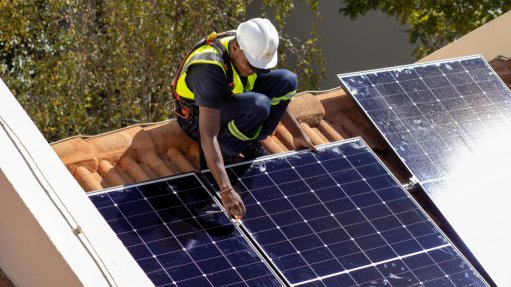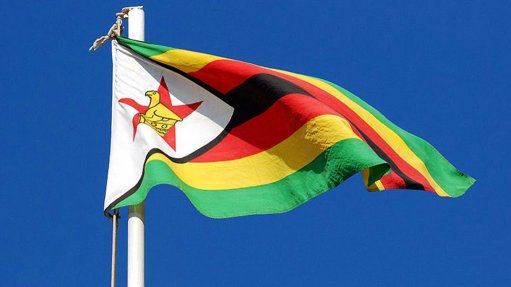SA cities not among the least liveable
South Africans are a whinging lot – there is survey data from credible research entities to prove this – and one of the biggest gripes is about living conditions in towns and cities, especially in the less-well-to-do areas, better known in our lingo as ‘locations’ or ‘townships’. The service delivery protests that play out with disturbing frequency in such areas and in the urban informal settlements that seem to be mushrooming all the time bear testimony to this.
That we have massive disgruntlement with living conditions among location and informal settlement dwellers – a demographic that accounts for a big chunk of the South African population – is a big indictment on those who preside over our affairs at all tiers of government. But, in all fairness to them – at least with respect to ensuring that our neighbourhoods are liveable – they are not the worst performers on the continent.
Last month, the Economist Intelligence Unit (EIU) published its latest Global Liveability Index, which ranks 140 urban centres on the basis of the state of their infrastructure, crime levels and the quality and cost of education and healthcare, as well as political and social stability.
In this year’s survey, six African cities made the list of ten ‘least liveable’ cities. The Nigerian city of Lagos, which was displaced by Abuja as the capital in 1991 but retains the status of the West African country’s commercial hub and is the most populous urban centre in Africa, was ranked the third least liveable city in the world. It scored 37.5% and 33.5% for healthcare and education respectively, 53.5% for culture and environment and 46.4% for infrastructure. The only other cities that scored lower than Lagos were war-ravaged Damascus, in Syria, and Dhaka, in Bangladesh.
The other poor performers of note in Africa were Harare, which the EIU ranks sixth globally and second to Lagos in Africa, Tripoli, in Libya, which was ranked seventh internationally, Douala, in Cameroon (eighth internationally), Algiers, in Algeria (ninth) and Dakar, in Senegal (tenth).
The survey, which was launched in 2004 to help investors prepare for opportunity by empowering them to act with confidence when taking strategic decisions, saw Vienna, the Austrian capital, dislodge Melbourne, in Australia, as the world’s most liveable city; the latter had held the title for seven years on the trot. Melbourne placed second, followed by the Japanese city of Osaka, Calgary, in Canada, and Sydney, another Australian city. Adelaide, also in Australia, brought up the rear in the top ten.
Although none of South Africa’s cities is on the ‘list of shame’, those in authority should not rest on their laurels. High levels of crime, challenges in healthcare and education, and a degree of political and social tension – which are common denominators among the least performing cities in this year’s survey – are part of the South African reality. They are all crying out for the attention of the powers that be. As the EIU points out, failure to fix these aspects is one of the defining criteria of a city that is not liveable, which, in turn, is a deterrent to offshore investment.
We also need to pay closer attention to our infrastructure, which is another factor determining the liveability of a town or city. Ours may be the best infrastructure on the continent, but the compilers of the South African Institution of Civil Engineering’s 2017 Infrastructure Report Card had a few harsh words to say about it. As an example, this is their comment on healthcare facilities: “A baseline audit [conducted in 2011/12] indicated that 80% of clinics were not fit for purpose, with weaknesses in infrastructure, staffing, availability of medicines, cleanliness, security and waiting time.” The engineering body cited the Department of Health as saying a turnaround was evident by 2016. However, this appeared only to be at clinics and community healthcare centres, with maintenance having been neglected at district, regional, tertiary and central hospitals.
Comments
Press Office
Announcements
What's On
Subscribe to improve your user experience...
Option 1 (equivalent of R125 a month):
Receive a weekly copy of Creamer Media's Engineering News & Mining Weekly magazine
(print copy for those in South Africa and e-magazine for those outside of South Africa)
Receive daily email newsletters
Access to full search results
Access archive of magazine back copies
Access to Projects in Progress
Access to ONE Research Report of your choice in PDF format
Option 2 (equivalent of R375 a month):
All benefits from Option 1
PLUS
Access to Creamer Media's Research Channel Africa for ALL Research Reports, in PDF format, on various industrial and mining sectors
including Electricity; Water; Energy Transition; Hydrogen; Roads, Rail and Ports; Coal; Gold; Platinum; Battery Metals; etc.
Already a subscriber?
Forgotten your password?
Receive weekly copy of Creamer Media's Engineering News & Mining Weekly magazine (print copy for those in South Africa and e-magazine for those outside of South Africa)
➕
Recieve daily email newsletters
➕
Access to full search results
➕
Access archive of magazine back copies
➕
Access to Projects in Progress
➕
Access to ONE Research Report of your choice in PDF format
RESEARCH CHANNEL AFRICA
R4500 (equivalent of R375 a month)
SUBSCRIBEAll benefits from Option 1
➕
Access to Creamer Media's Research Channel Africa for ALL Research Reports on various industrial and mining sectors, in PDF format, including on:
Electricity
➕
Water
➕
Energy Transition
➕
Hydrogen
➕
Roads, Rail and Ports
➕
Coal
➕
Gold
➕
Platinum
➕
Battery Metals
➕
etc.
Receive all benefits from Option 1 or Option 2 delivered to numerous people at your company
➕
Multiple User names and Passwords for simultaneous log-ins
➕
Intranet integration access to all in your organisation


















